47% of adults are afraid of the dark and it's affecting their sleep — here’s how to cope
Here's how to get a good night's sleep, even if you are still afraid of the dark
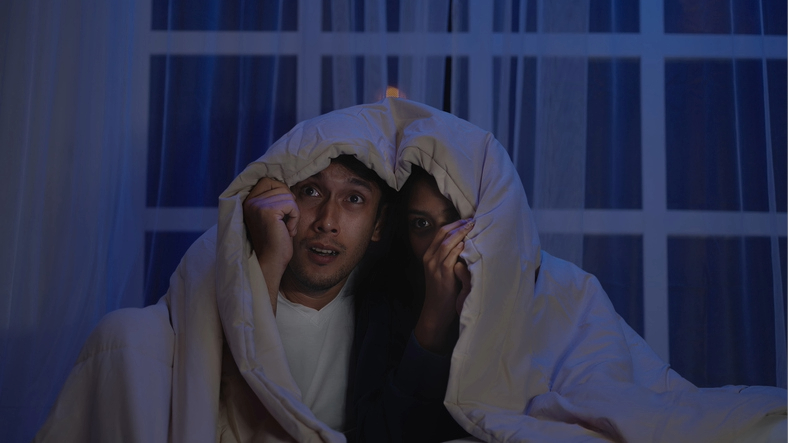
No matter what the Ghost Busters say, it turns out we are afraid of those ghosts. From hearing strange noises to experiencing nightmarish dreams or fretting about paranormal or human intruders, we're a population of nighttime worriers, and according to a new study, 47% of us are afraid of the dark.
Even if you've chosen the best mattress for your sleep needs and made your bedroom into a calm haven, if you're one of the many people afraid of the dark, getting a night of quality sleep is not an easy feat.
New research from Benson for Beds shows nearly half of British adults are still afraid of the dark and this fear is affecting their sleep. A fifth say their fear is triggered by spooky season festivities, so with Halloween week upon us, we asked psychotherapist and author Eloise Skinner how we can sleep better when we're afraid of dark nights.
How does being afraid of the dark impact sleep?
The study, conducted by Bensons for Beds, surveyed 1,000 adults and found that nearly half (47%) are still afraid of the dark, while a third say they don’t feel completely safe at night, which wreaks havoc on sleep quality.
Fear of the dark, medically defined as nyctophobia, means checking behind doors, under the bed and in the wardrobe is an instinctive part of 38% of people's bedtime routine. 25% even go as far as sleeping with their head under a pillow. This can make falling asleep difficult, as your heightened anxiety levels make it tricky to switch off for bedtime.
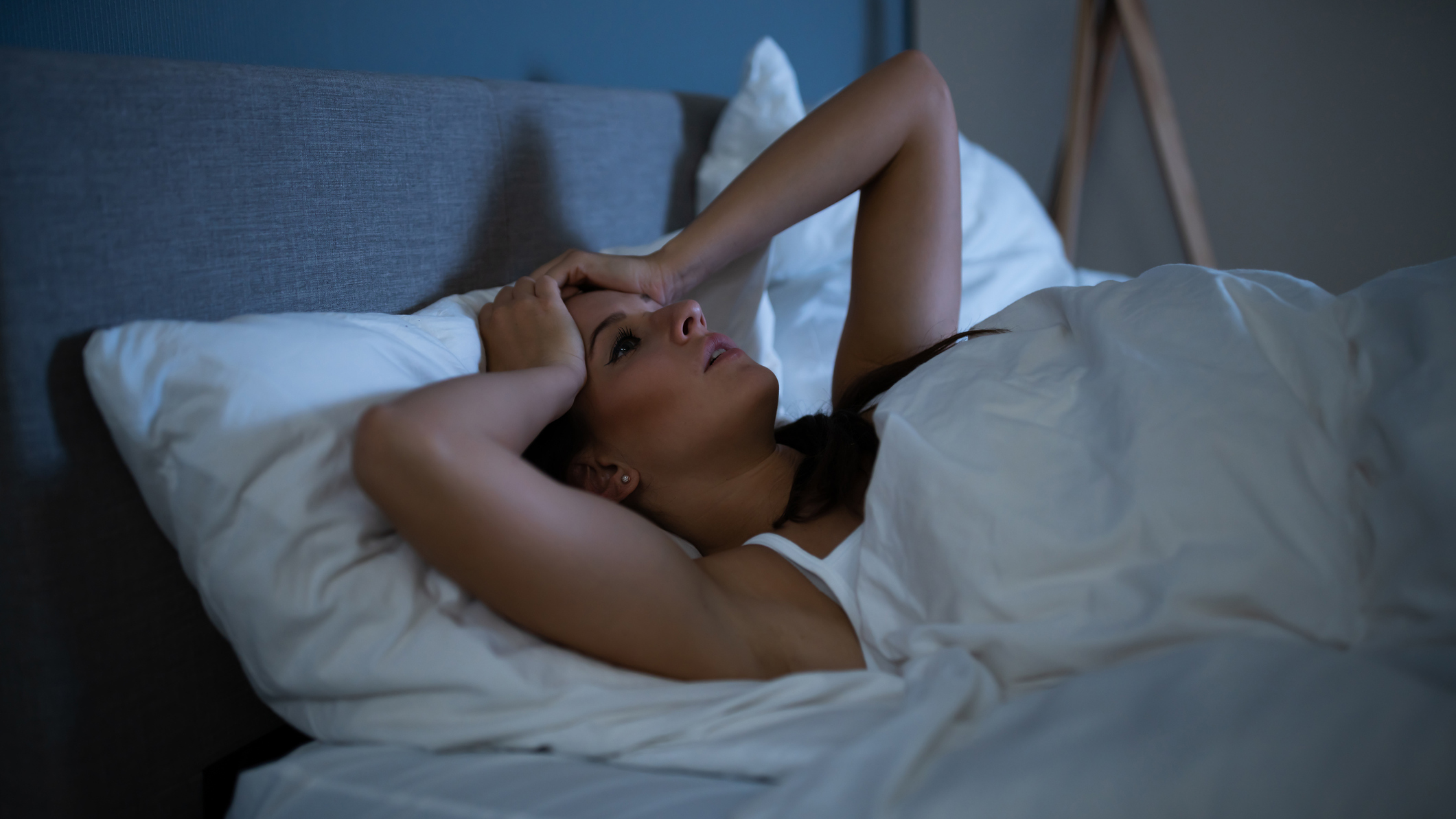
It's not only nighttime anxiety keeping adults up at night, genuine fear of ghosts and monsters is also a problem, no matter how much we think we should have out grown these fears. In fact, the research found 35% of adults say they're afraid of the dark because they worry about these ghouls.
As a result, just under half of adults (46%) leave a light on while they sleep to help them cope. But this runs the risk of worsening sleep quality because it suppresses melatonin production and disrupts our circadian rhythm.
Sign up to get the BEST of Tom's Guide direct to your inbox.
Get instant access to breaking news, the hottest reviews, great deals and helpful tips.
How to sleep better when you're afraid of the dark
Being afraid of the dark doesn't have to negatively impact your sleep. Here are some ways to get a good night's sleep even if turning out the lights ramps up your anxiety.
1. Read a fun bedtime story
It's a tale as old as time, but there's nothing like a bedtime story to soothe you to sleep, no matter your age.
According to Bensons for Beds' findings, a third of adults wish they had a better wind down routine to help them cope with their fear of the dark. Skinner suggests part of that routine could be a light-hearted bedtime read in place of screentime.
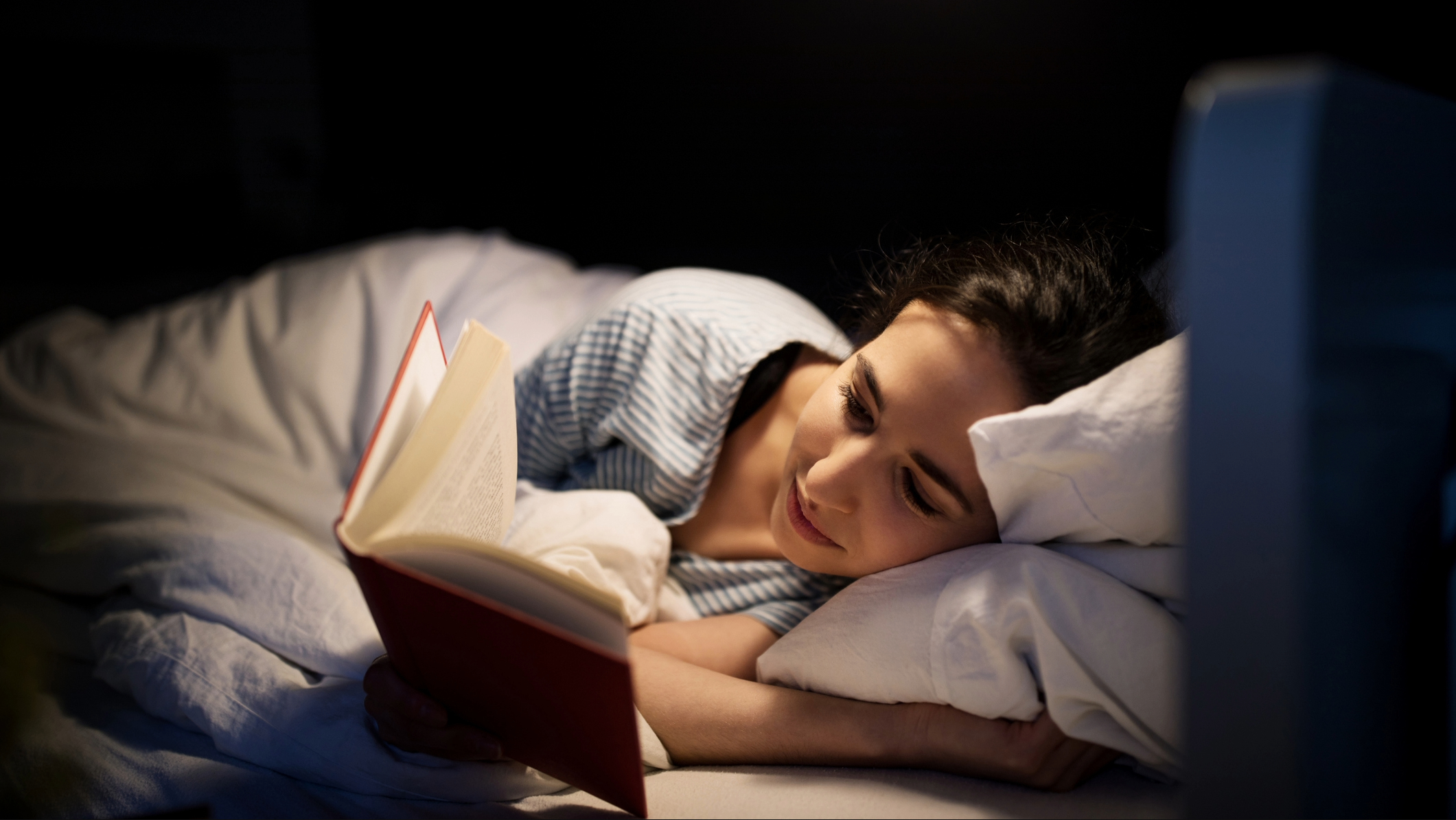
She says: "Focusing on a fun bedtime routine such as reading a bedtime story could help people cope with this fear. Choosing a story where the main character overcomes a fear of the dark could help reduce anxiety and soothe people to sleep."
While it may sound childish, reading has been shown to calm the body and the mind, making it the perfect bedtime habit.
2. Avoid electronics before bed
With so much of today's media revolving either around real life terrors (news programmes, we're looking at you) or terrifying fiction (horror and thriller are two of the most popular film genres), it is no surprise that screentime before bed can make you feel uneasy.
Therefore, being selective about the media you consume ahead of bedtime, winding down with an uplifting book or following our tips for how to sleep after a scary movie marathon (we get it's Halloween and you won't want to miss out on the festivities) can help you get a hold on your fear of the dark and achieve the best quality rest.
3. Practice relaxation techniques
Meditation and breathing techniques can help you calm your mind and nervous system before bed, reducing nighttime anxiety and fears.
We've tested several trending bedtime breathing methods and our sleep-coach-approved recommendations are the 4 7 8 sleep method and moon breathing.
4. Use a night light
While science discourages sleeping with any light on, a little light in a darkened room can help alleviate fear of the dark. Night lights are designed to help you sleep when battling this fear.
They use warmer colours like red and orange which don't affect your circadian rhythm as much as cooler color lights. These lights help you feel more comfortable and secure in a dark room, which can help you fall asleep faster and stay asleep longer.
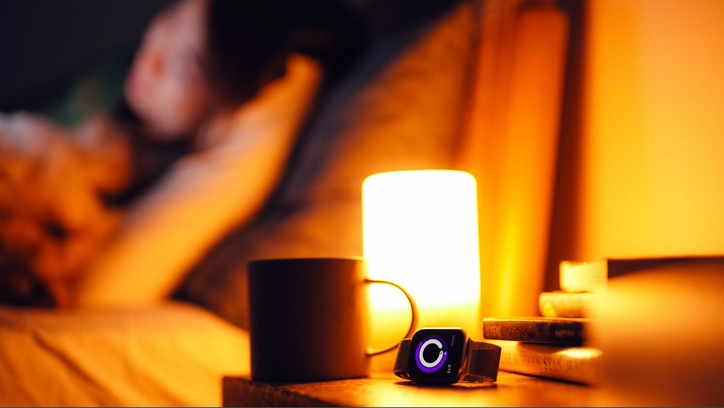
Why are people afraid of the dark?
There are many causes of nyctophobia, from evolution to trauma and media consumption. Firstly, our ancient ancestors were at greater risk of being attacked by predators at night when their vision was poor or when we were vulnerable when sleeping, naturally leaving them fearful of darkness. This fear became instinctual. Passed down generations, and is still experienced today.
Skinner explains: "Our fear of the dark can be related to primal instincts, and the factual reality that we're more at risk in the dark and more vulnerable when we can't see our full surroundings."
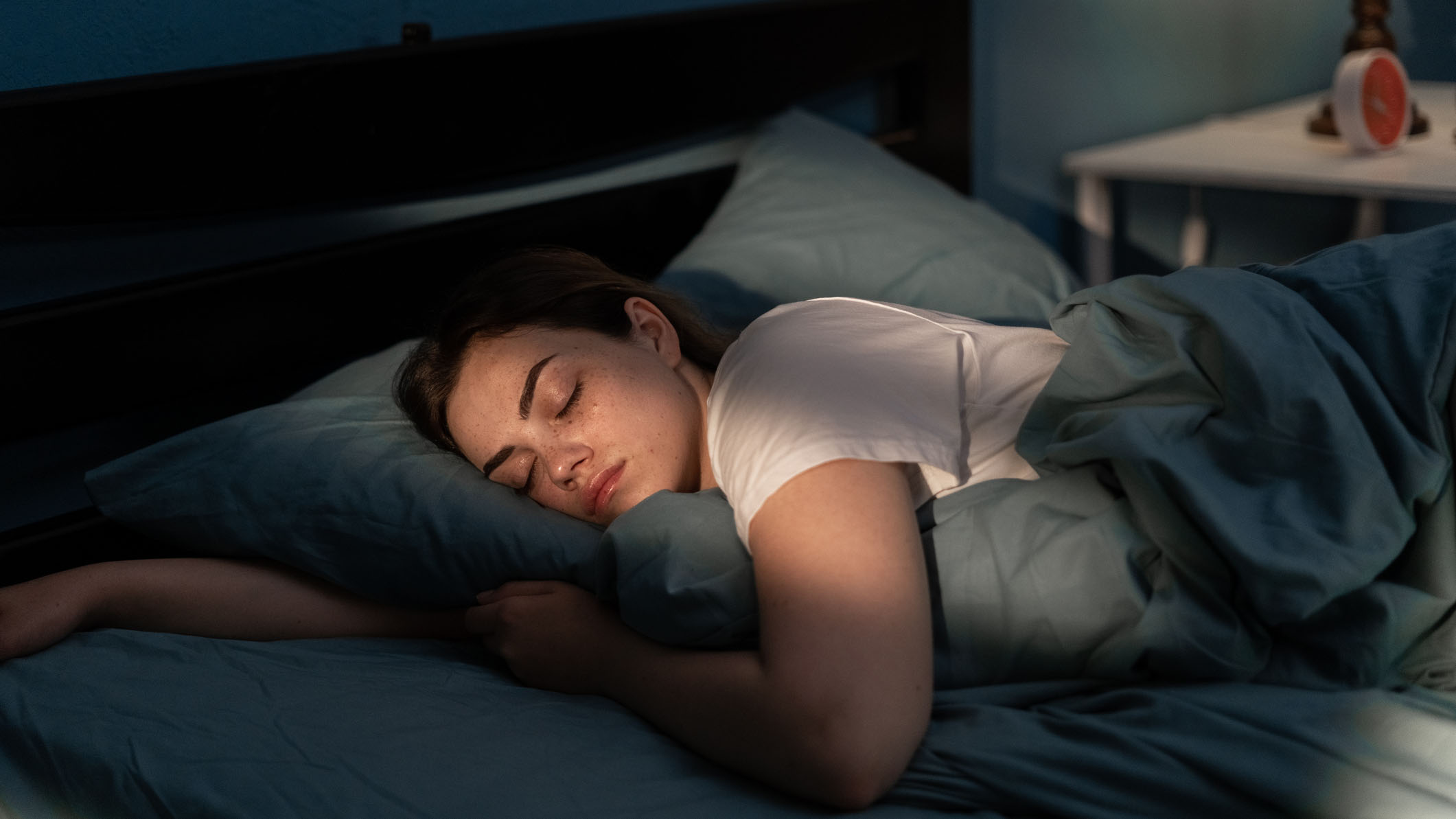
Mental health can also influence how we feel about the dark. Skinner says feelings of "uncertainty, loneliness or isolation" can lead our imagination to "envisage frightening situations." These imaginations can make us feel unsafe, preventing us from getting to sleep and sleeping peacefully throughout the night.
More simply, fear of the dark can be ignited by watching a scary movie. The new study found we're not helping ourselves when it comes to nighttime fear as 2 in 5 people say their nyctophobia is triggered by watching horror movies that cause a vicarious fight or flight response.
Who is more likely to be afraid of the dark?
Being afraid of the dark is typically a fear associated with children. While many of us grow out of this fear, the new research shows it still affects almost a half of adults, making them equally vulnerable to distress caused by the prospect of ghosts and monsters creeping into their homes.
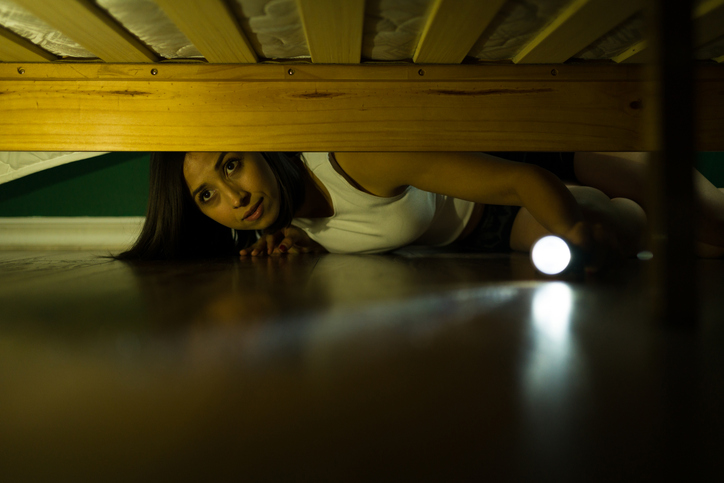
Interestingly, men are more worried about supernatural creatures in the dark than women are. While 49% of men say they're afraid of the dark because they worry about ghosts and monsters, only 26% of women say this is the cause of their nyctophobia.
Skinner reckons this is down to men feeling "an additional obligation to be alert on behalf of others." She adds: "It’s interesting to see from the research that men are more afraid of the supernatural than women. This could possibly be due to the fact that men feel a need to be protectors, or to take care of others, whereas women might feel safe in the knowledge that their partner is present."
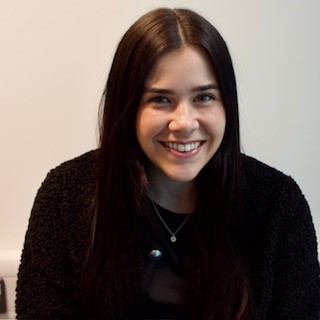
Eve is a PPA-accredited journalist with an MA in Magazine Journalism from Cardiff University. She is a Sleep Staff Writer at Tom’s Guide and has four years’ experience writing health features and news. She is particularly interested in the relationship between good sleep and overall health. At Tom’s Guide Eve is responsible for coverage and reviews of sleep tech and is our smart and cooling mattress specialist, focussing on brands such as Eight Sleep and Sleep Number. She also covers general mattress reviews, seeks out the best deals to produce tried-and-tested buyer's guides for sleep accessories and enjoys writing in-depth features about sleep health. She has been involved in rigorous testing procedures for mattress reviews in our Sleep Studio and has interviewed experts including sleep doctors and psychologists. When not covering sleep at Tom's Guide, Eve enjoys writing about health and fitness, food and culture.
